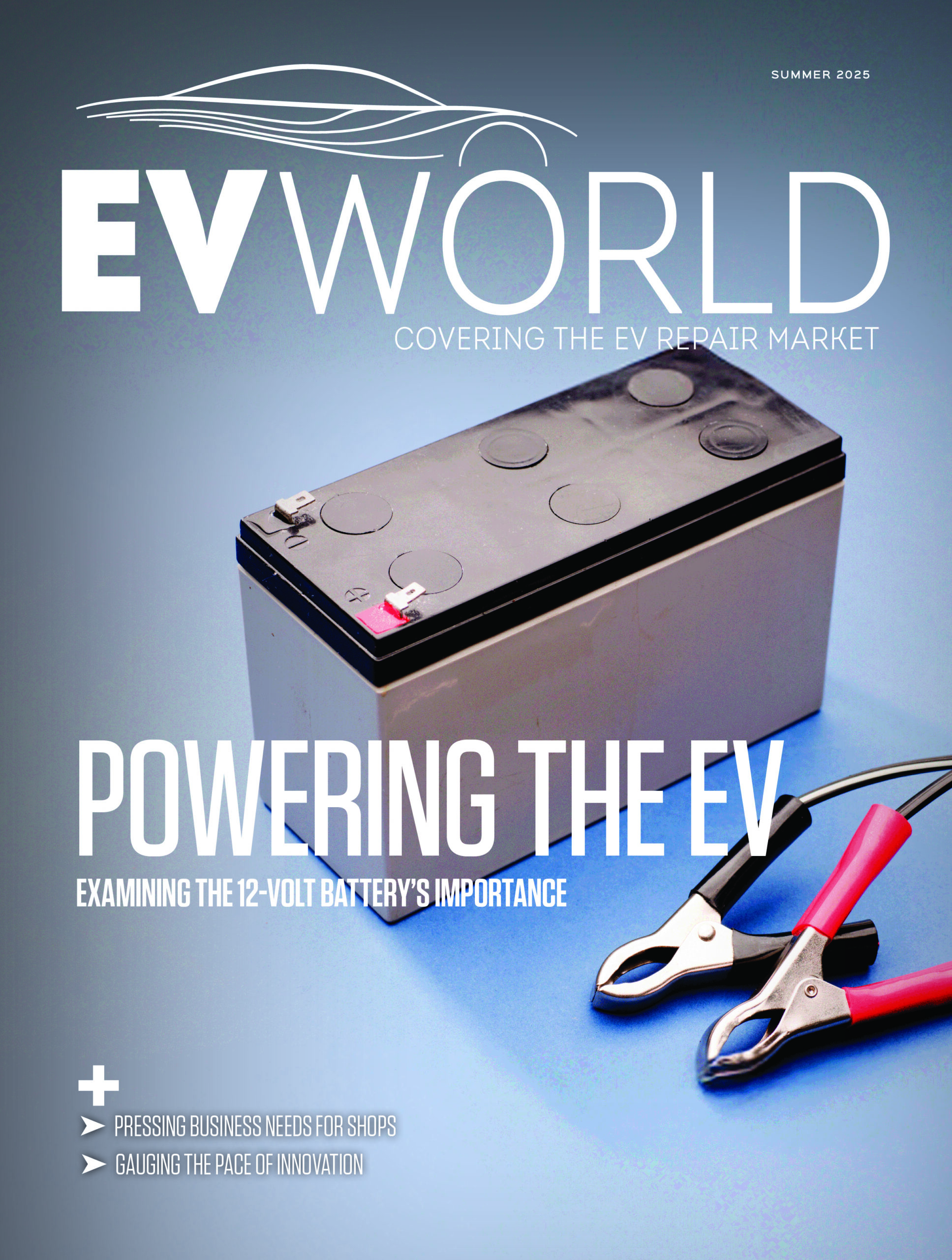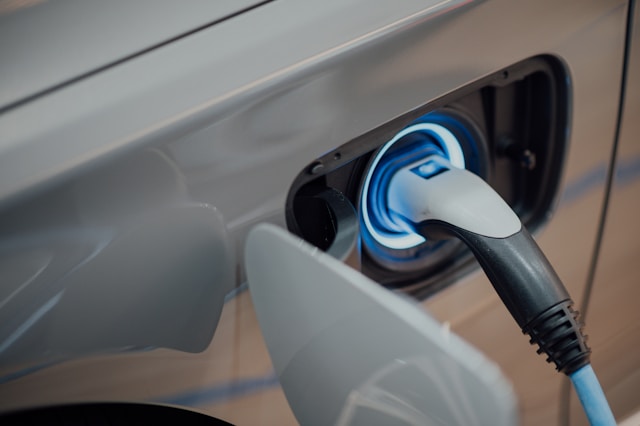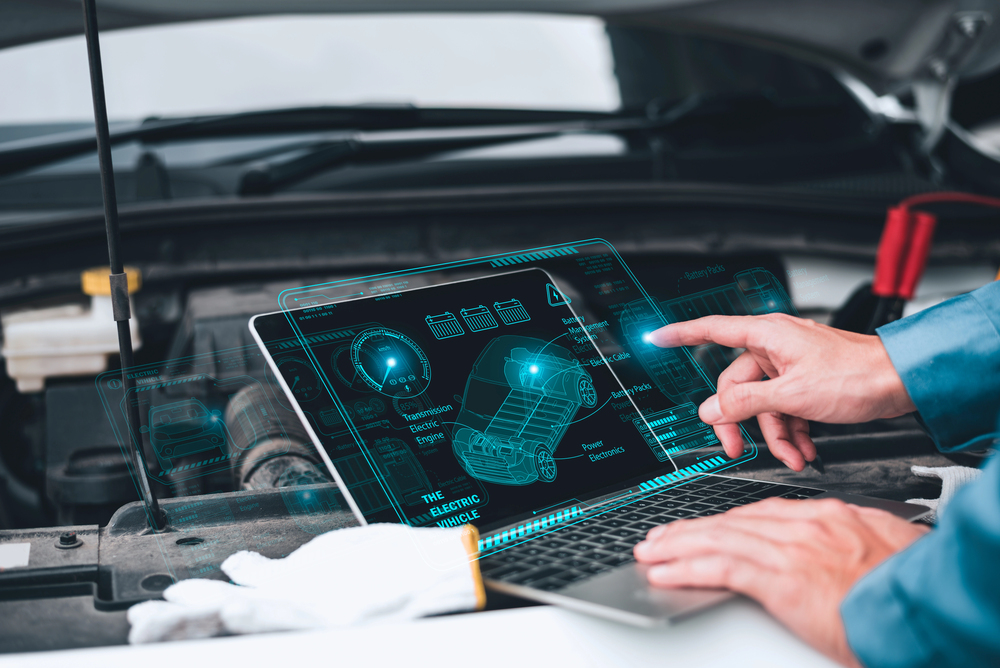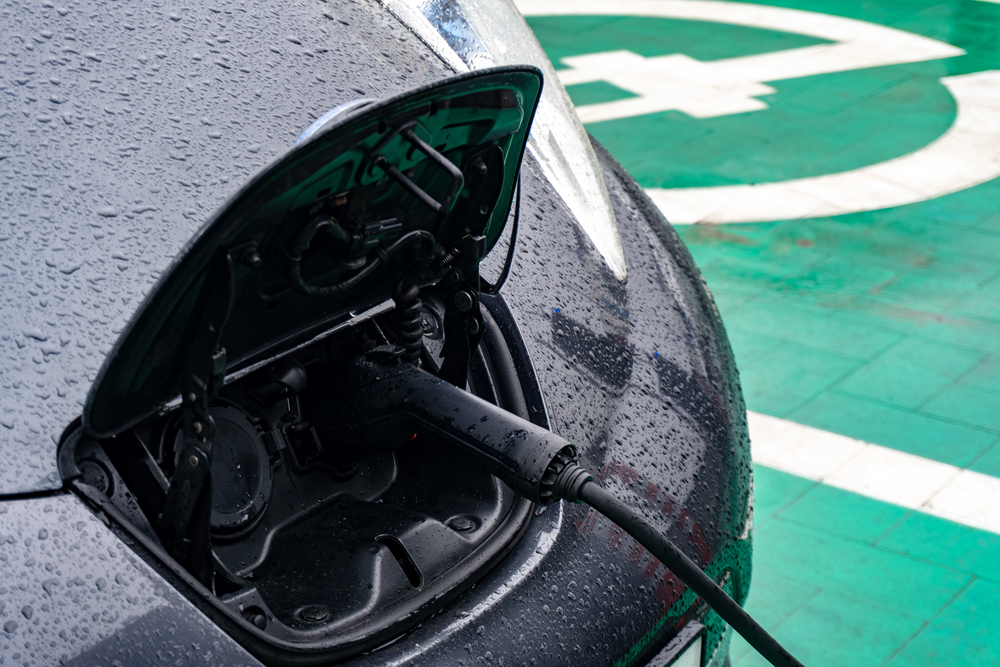
With options for education growing, let’s take a look at what makes a good course for you and your technicians
With the continued expansion of electric vehicles and equipment, technicians involved in their diagnosis, repair and maintenance need specialized training, aligned not only with best practise but delivered in a way to maximize understanding and build confidence.
Good and effective EV training courses, especially introductory courses or those where participants are new to EV repair or maintenance, are characterized by several key components that address the unique needs and learning styles of technicians today. They focus on engagement, relevance and practical application.
The following key elements or components should be considered when looking at how good or effective an EV course will be.
Clear objectives and outcomes
Clear and specific learning objectives are crucial in defining the purpose and goals of any technical training course — but it is of particular importance for an EV training course where improper technique or habits can be dangerous.
Well-defined curriculum and expected outcomes allow both the participant and management to understand what they are getting into. The scope of what they will learn keeps the course on track. An effective course provides well-defined outcomes that align with the technician’s skill advancement as well as the maintenance or repair teams needs.
These objectives should be measurable and attainable often defined by specific rubrics, giving learners a roadmap of what they can expect to achieve by the end of the course.
Clear and specific learning objectives are crucial in defining the purpose and goals of any technical training course — but it is of particular importance for an EV training course where improper technique or habits can be dangerous.
Current and relevant content
An EV technical training course should emphasize current best practices and relevant applications of the skills being taught.
The content should be designed to mirror problems technicians are likely to face in their work environments. Case studies, simulations, and real-world problem-solving tasks should be integral parts of the course. This not only keeps the training relevant but also helps technicians transfer knowledge and skills more effectively to their jobs and throughout the shop.
Practical hands-on experience
For any technical training course to be truly effective, theoretical knowledge must be coupled with hands-on practice and experience.
Technicians are hands-on people and often learn best by doing, especially when it comes to technical skills. Incorporating repair problems and diagnostic exercises, including known good data, into the course structure ensures that learners not only understand the theory behind a concept but can also apply it in practice. Practical exercises help solidify the concepts, giving technicians a chance to experiment in a safe, supervised environment to build good habits.
A good course strikes a balance between theoretical instruction and hands-on activities, offering opportunities for learners to use tools, software, or systems that mirror those they’ll encounter in the real world.
Qualified and engaging instructors
As with any training, the instructor plays a central role in the success of a technical training course for EVs.
Effective instructors are not only subject matter experts but also skilled facilitators who understand the principles of adult learning. They should be qualified and licensed in the areas being taught and often bring relevant management and or bench experience to the table. They can communicate complex technical information in a clear, understandable way and are adept at creating an inclusive, supportive learning environment.
Instructors should be approachable, patient and open to participants feedback and skill level. They should also encourage active participation, foster critical thinking and guide technicians through real-world challenges.
Interactive, flexible and appropriate delivery
Coupled with an engaging instructor course content and structure should be engaging as well as flexible.
We are all too aware of ‘death by PowerPoint.’ To keep technicians engaged, an EV training course should incorporate interactive methods, such as group discussions, collaborative problem-solving tasks, and live demonstrations. The course should leverage technology, specialized tools and props as well as simulation that make learning more enjoyable and effective.
A good EV training course should offer multiple delivery formats, such as in-person, online modules or blended learning environments that best fit the schedule, learning preferences and content.
A ‘good’ EV course should facilitate skill acquisition, foster knowledge retention, and ultimately, empower participants to apply what they have learned in a safe and effective manner.
Progressive learning
Technicians benefit from information being delivered in a structured manner that builds upon their existing knowledge.
Often described as “scaffolded or progressive learning,” an effective EV training course presents content in a step-by-step, hierarchical manner. Each new concept should build on the previous one, enabling learners to understand increasingly complex ideas without feeling overwhelmed.
The course should start with foundational concepts from basic electrical theory, specialized equipment and proper safety practices, introducing more advanced topics as the technician gains confidence and competence.
This approach helps prevent brain overload while allowing technicians to grasp difficult concepts at a safe and manageable pace.
Continuous feedback and assessment
Providing continuous and constructive feedback is vital in technical training. Technicians need to know how they are progressing to form good habits. An effective EV course includes frequent, formal and informal assessments such as quizzes, or hands-on skill tests to track progress.
These assessments should not only measure knowledge acquisition but also provide feedback that learners can use to improve their performance.
Continuous content improvement
To maintain both relevance and engagement a training course should undergo continuous evaluation and improvement.
Gathering feedback from participants through surveys, interviews or assessments helps course designers identify areas that need updating. The evaluation process should be both qualitative and quantitative, considering learners’ satisfaction, knowledge retention and skill application in real-world settings.
By incorporating this feedback, the course can stay relevant to technological advances and the shifting needs of the participants.
Ongoing support
Finally in any technical EV training course, it is important to provide learners with access to additional resources and ongoing support that they can use to deepen their understanding or clarify concepts.
Resources such as tutorials, reading materials, specialized tools or equipment and access to course forums can offer significant benefits. Effective courses include opportunities for participants to ask questions, seek clarification, and get feedback from instructors or peers, either in real-time or at a later date. The availability of accessible resources reinforces learning, increases retention, and makes the course more inclusive for learners with different needs and learning styles.
In the end, an effective course enables technicians to safely and effectively diagnose, maintain and repair electric vehicles with confidence. A ‘good’ EV course should facilitate skill acquisition, foster knowledge retention, and ultimately, empower participants to apply what they have learned in a safe and effective manner.
David Mayers is chief executive officer at Environmental Motorworks, an innovative services company centred on providing hands-on EV and hybrid training to technicians and fleet operators in the automotive and heavy equipment sectors.













Leave a Reply